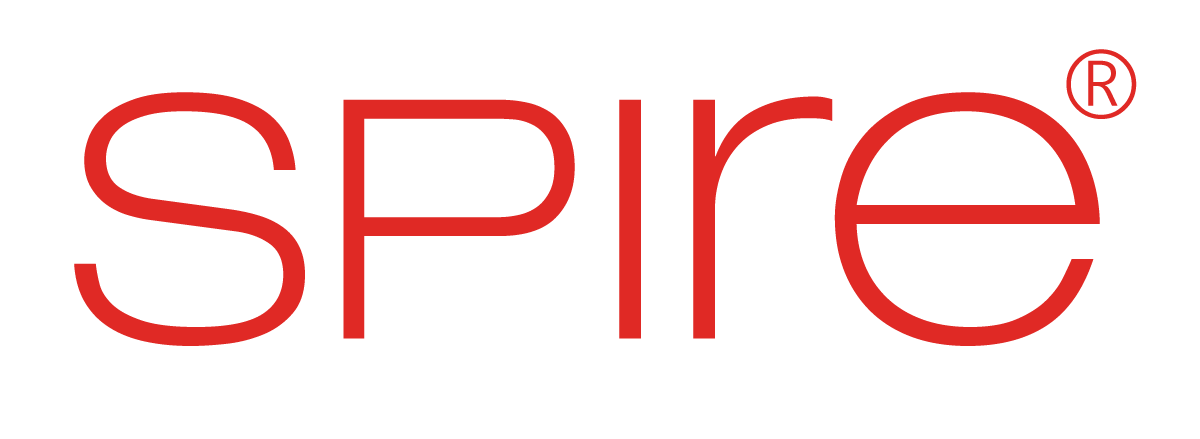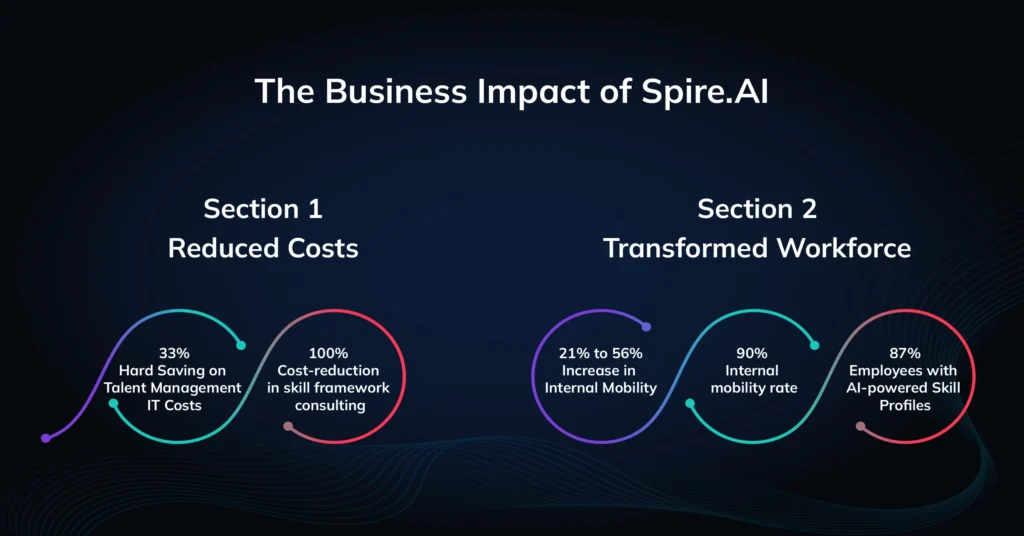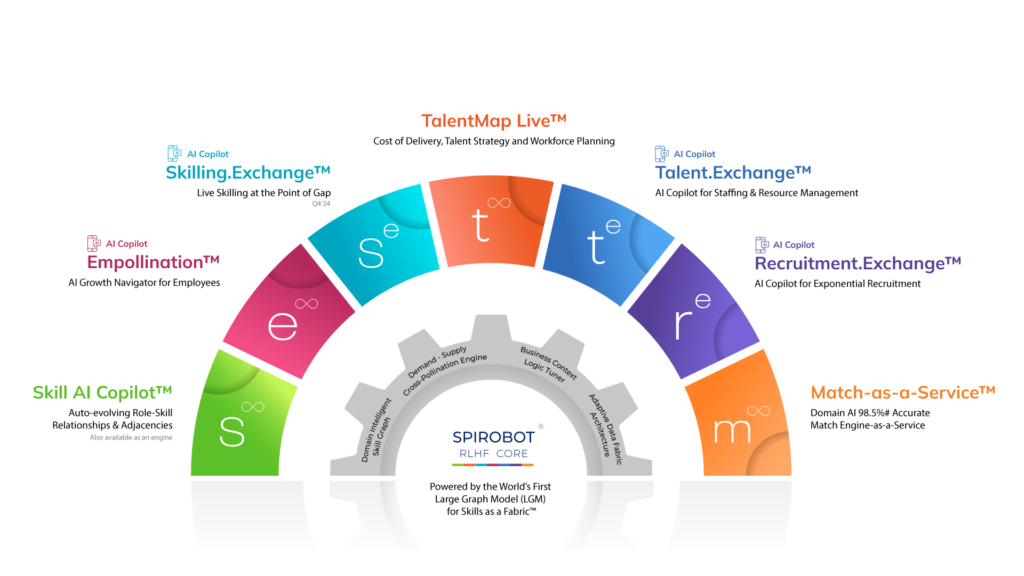The traditional talent management landscape needs to be more cohesive. Broken talent systems, siloed data, and static skill matrices frustrate businesses and employees. Organizations need help identifying the right talent for the job, while employees feel stuck in dead-end roles and need more development opportunities to thrive.
This challenge is further amplified by the paradigm shift towards transforming into a Skill-Based Organization (SBO). In today’s dynamic business environment, success hinges on a workforce with the right skills, not just specific job titles. Adapting, learning, and continuously developing new skill sets is paramount.
The Broken Talent Management System and the Rise of Skill-Based Organizations
The limitations of traditional talent management systems are becoming increasingly apparent. These siloed systems need help keeping pace with the rapid evolution of skills required for success. Static job descriptions and manual processes hinder agility, making it easier to identify and develop the talent needed to achieve strategic goals.
Traditional talent management systems struggle with the following:
– Static Skill Matrices: Manual and outdated skill matrices fail to capture the complexity and multi-dimensionality of modern job roles.
– Siloed Data: Talent data resides in isolated systems, hindering a holistic view of your workforce capabilities.
– Disjointed Processes: Disparate talent management functions create inefficiencies and slow down critical processes like talent acquisition and development.
Skills-Based Organizations (SBOs) represent a paradigm shift. They recognize that skills, not job titles, are value currency. This approach demands a talent management system that can:
- Identify and map employee skills with a comprehensive and dynamic framework.
- Facilitate continuous learning and development to bridge skill gaps and foster growth.
- Enable internal mobility by matching the right skills to the right opportunities.
- Optimize talent acquisition by attracting and hiring top talent based on required skill sets.
- Streamline resource management by ensuring the right people are assigned to the suitable projects.
Introducing Spire.AI Copilot for Talent: The Unifying Force in Your Talent Operations
Spire.AI goes beyond traditional talent management systems. It acts as an AI Copilot, providing automation, intelligence, and a unified platform to bridge the gaps between your siloed talent functions. In the following sections, we’ll explore how Spire.AI integrates with different aspects of your talent operations, empowering you to create a seamless and future-proof talent strategy.
Here’s a closer look at how Spire.AI integrates with your existing systems and empowers each talent function:
1. Auto-Evolving Role-Skill Framework: The Foundation for a Skills-Based Talent Strategy
The foundation of any successful SBO is a robust and dynamic skill framework. Spire.AI Auto-Evolving Role-Skill Framework is a powerful tool that replaces outdated, static skill matrices. Here’s how it works:
Spire.AI’s framework utilizes a Large Graph Model (LGM) containing over 10 million skill nodes.
This vast knowledge base allows the framework to capture the intricate relationships between various skills and roles within your specific industry.
Leveraging Domain-Specific Knowledge
Spire.AI’s framework utilizes a Large Graph Model (LGM) containing over 10 million skill nodes. This vast knowledge base allows the framework to capture the intricate relationships between various skills and roles within your specific industry. For example, the framework understands that “marketing automation” isn’t just a standalone skill but is often intertwined with skills like “data analysis” and “content creation.”
Auto-Identification of Skill Mixes
Manually identifying the skills required for each role at different levels (base, enhanced, expert) is time-consuming and error-prone. Spire.AI eliminates this burden. Leveraging the LGM and your company data, the framework automatically identifies the specific skill sets required for each role. This ensures your talent management strategies are built on a solid foundation of accurate skill requirements.
Seamless Integration and Configurability
Implementing a new framework can be disruptive. Spire.AI understands this. The Auto-Evolving Role-Skill Framework is designed for seamless integration. Additionally, it’s highly configurable, allowing you to tailor it to your business context and industry needs. This plug-and-play tool can morph into your requirements and go live quickly.
Single Source of Truth
Static skill matrices quickly become outdated, creating discrepancies across talent functions. The Auto-Evolving Role-Skill Framework operates as a centralized and constantly evolving system. This ensures consistency and accuracy of skills data used for recruitment, development, and deployment across all talent operations.
Talent Stakeholder Impact
Workforce Planning
- Strategic Skills Forecasting: Workforce planners can leverage the framework to gain a future-oriented view of skill needs. By analyzing industry trends and the organization’s strategic goals, the framework can identify the skills critical for success in the coming months and years. This empowers planners to:
- Develop proactive talent acquisition strategies to source and attract talent with the skills needed for future growth.
- Identify potential skill gaps well in advance and develop targeted upskilling and reskilling programs to close those gaps before they hinder business objectives.
- Optimize workforce allocation by ensuring the right skills are deployed to the suitable projects at the right time.
- Scenario Planning: The framework allows workforce planners to model different business scenarios and assess their impact on skill needs. This enables them to develop contingency plans and ensure the workforce remains adaptable in the face of unforeseen challenges.
Organization Design
- Dynamic Role Definition: Organization designers can utilize the framework to define roles with a nuanced understanding of the required skill sets. This ensures that roles are designed to meet the organization’s specific needs and can be easily adapted as skill requirements evolve.
- Identifying Skill Interdependencies: The framework helps uncover the intricate relationships between different skills within a role. This empowers organization designers to create cohesive and efficient workflows where team members can leverage each other’s skill sets for optimal performance.
- Data-Driven Decision Making: By providing a centralized source of skill data, the framework allows organization designers to make informed decisions about team structure, deployment, and future talent needs. This data-driven approach fosters a more agile and adaptable organizational structure that can keep pace with the changing skill landscape.
2. Talent Management for Skills-Based Organizations: Empowering Employees and HRBPs
Spire.AI goes beyond skills identification. It empowers both employees and HR Business Partners (HRBPs) with powerful AI-powered tools designed to foster a culture of continuous learning and development:
Employee Empowerment
AI-Generated Skill Profiles
Gone are the days when employees relied solely on job titles to understand their skill sets. Spire.AI leverages AI to generate comprehensive skill profiles for employees automatically. These profiles go beyond basic job descriptions, unveiling a detailed picture of an employee’s skills based on work experience, past projects, and internal training completion records. With minimal input (e.g., job title), employees gain valuable self-awareness, empowering them to:
- Identify strengths and weaknesses in their skill sets.
- Make informed decisions about career development paths.
- Target relevant learning opportunities to bridge skill gaps and enhance their skill sets.
Career Path Simulations and Reskilling Recommendations
The traditional approach to career development often leaves employees feeling lost in a maze of potential paths. Spire.AI personalizes the journey. By analyzing individual skill profiles and career aspirations, alongside the company’s growth plans, Spire.AI provides employees with personalized recommendations for:
- Lateral and Vertical growth: Tools recommend the ideal career paths for employees within the organization and nudge gently to work towards them.
- Upskilling and reskilling: The system identifies specific skills needed to progress vertically or laterally within the organization.
- Learning and development opportunities: Employees receive recommendations for relevant training programs, online courses, or mentorship opportunities to acquire the desired skills.
Live Internal Talent Marketplace
Spire.AI’s Live Internal Talent Marketplace revolutionizes internal mobility by fostering a dynamic and transparent environment. Here’s how it empowers employees:
- Visibility into Opportunities: The platform showcases all relevant internal job openings and nudges employees towards those that align with their skill set and career goals. This eliminates the need for employees to rely on hearsay or unofficial channels to discover internal opportunities.
- Streamlined Application Process: The marketplace provides a user-friendly interface for applying to internal positions. This reduces administrative burdens and expedites the application process for employees.
- Focus on Merit and Skills: The platform operates on a skills-based matching system, ensuring that opportunities are awarded based on an employee’s capabilities rather than personal connections or internal politics. This fosters a culture of meritocracy and motivates employees to develop their skills continuously.
HRBP Enablement
Spire.AI equips HRBPs with the tools and insights needed to make data-driven decisions and cultivate a high-performing workforce:
- Real-Time Skills Insights: HRBPs gain access to a comprehensive view of the workforce’s skills and capabilities. This empowers them to make informed decisions regarding talent acquisition, development, and deployment strategies.
- Targeted Skill Gap Closure: By identifying skill deficiencies across teams and departments, HRBPs can develop targeted training programs to bridge skill gaps before they hinder project execution or innovation.
- Optimizing Internal Mobility: The Live Internal Talent Marketplace facilitates internal mobility by connecting employees with open positions that align with their skills and aspirations. This reduces reliance on external recruitment, fosters a more engaged workforce, and allows HRBPs to retain top talent within the organization.
3. AI-Powered Talent Acquisition: Finding the Right Fit, Faster
The war for talent is accurate, and traditional recruitment methods often struggle to keep pace. Spire.AI’s AI-powered talent acquisition tools empower recruiters to source top talent faster and more efficiently:
Automated Supply Cross-Pollination
Spire.AI recruitment functions as a continuous cross-pollinator, constantly analyzing candidate profiles against your open positions. This real-time matching ensures you’re alerted when a strong candidate with a high CV fitment emerges, even if they haven’t applied directly to your specific posting.
Improved Candidate Matching Accuracy
Matching resumes to job descriptions can be time-consuming and subjective. Spire.AI utilizes domain-intelligent algorithms to analyze job descriptions and resumes. These algorithms go beyond essential keyword matching and consider the context and relationships between skills. This leads to more accurate matches, reducing time-to-hire and ensuring a higher quality of candidates entering the interview process.
Automated Resume Inventory
Resumes often sit in disorganized folders or applicant tracking systems (ATS), making it difficult for recruiters to find the right candidate quickly. Spire.AI automatically categorizes resumes based on skill level (expert, advanced, proficient) within the framework’s defined skill sets. This enables faster sourcing of qualified candidates with the specific skills required for open positions.
The Benefits for Recruiters:
- Reduced Cost-per-Hire: By expanding the talent pool, improving match accuracy, and streamlining the sourcing process, Spire.AI helps reduce the overall cost of acquiring new talent by almost 70%.
- Shorter Time-to-Hire: With ongoing sourcing and more accurate matches, recruiters can fill open positions quicker, minimizing disruptions to project timelines and ensuring business continuity.
- Improved Candidate Experience: The streamlined application process and skills-based matching system create a positive candidate experience, enhancing your employer brand and attracting top talent.
4. Resource Management: Optimizing Project Delivery
For staffing and professional services organizations, Spire.AI offers AI-powered solutions to optimize resource allocation and project delivery:
- Forecast-to-Fulfill Optimization: Spire.AI doesn’t just analyze skills; it explores the entire project ecosystem. The system considers factors like project requirements, deadlines, and budget constraints. Leveraging this data, Spire.AI utilizes advanced algorithms to match the most suitable talent with each project. This ensures:
- The right skills are placed on the right project at the right time, maximizing team efficiency and project success rates.
- Project timelines are met by allocating resources effectively and avoiding skill gaps that could lead to delays.
- Real-Time Skills Insights: Resource managers gain a real-time view of the available skillsets within the talent pool. This empowers them to make informed decisions about resource allocation, identify potential skill gaps within project teams, and proactively address any resource bottlenecks.
- Improved Profitability: By optimizing resource allocation and ensuring the right talent is assigned to projects, Spire.AI helps organizations maximize project margins. Reduced rework due to skill gaps and improved project delivery efficiency translate to a significant positive impact on your bottom line.
The Benefits:
- Increased Project Success Rates: Spire.AI empowers teams to deliver projects on time and within budget by ensuring the right skills are deployed on each project.
- Enhanced Client Satisfaction: Successful project delivery leads to satisfied clients. Spire.AI helps ensure your projects meet client expectations, fostering stronger relationships and repeat business opportunities.
- Improved Resource Utilization: Spire.AI optimizes resource allocation, preventing situations where high-skilled talent is underutilized on low-complexity tasks. This allows them to focus on higher-value activities and maximize their potential.
The Business Impact of Spire.AI
Reduced Costs
- Net IT Cost Reduction: Spire.AI delivers hard savings of 33% on IT costs associated with talent management.
- Skill Framework Savings: Eliminate the need for expensive skill framework consulting with Spire.AI’s automated solution, saving you 100% of those costs.
Transformed Workforce
- Increased Internal Mobility: Spire.AI facilitates a dramatic increase in internal mobility, jumping from 21% to 56% within eight weeks.
- Focus on Internal Talent: Organizations using Spire.AI achieve a 90% internal mobility rate, ensuring top talent is nurtured and utilized effectively.
- Empowered Employees: 87% benefit from AI-powered skill profiles, enabling personalized learning and career growth.
Streamlined Operations
- Automated Framework: Spire.AI replaces manual skill matrices with an auto-evolving framework, eliminating the need for time-consuming updates.
- Rapid Implementation: Spire.AI mapped 13,500 employees within ten weeks, seamlessly integrating existing roles into the new framework.
The Future of Talent Management is Skill-Based, and It Starts Now
The rise of Skill-Based Organizations (SBOs) demands a new approach that prioritizes skills over titles and fosters a culture of continuous learning and development. This is where Spire.AI steps in. As an AI Copilot for Talent, Spire.AI unifies your talent operations, providing the automation, intelligence, and centralized platform needed to build a future-proof talent strategy. From a dynamic skills framework to AI-powered talent acquisition and project resource management, Spire.AI empowers all talent stakeholders to make data-driven decisions, unlock potential, and achieve strategic goals.
The path forward is clear: embrace the SBO model and leverage AI-powered talent management solutions like Spire.AI. You can build a future-proof workforce that fuels innovation and drives business success by prioritizing skills, fostering continuous learning, and optimizing talent deployment. Take the lead before your competitors. The time to invest in a skills-based talent strategy is now.







